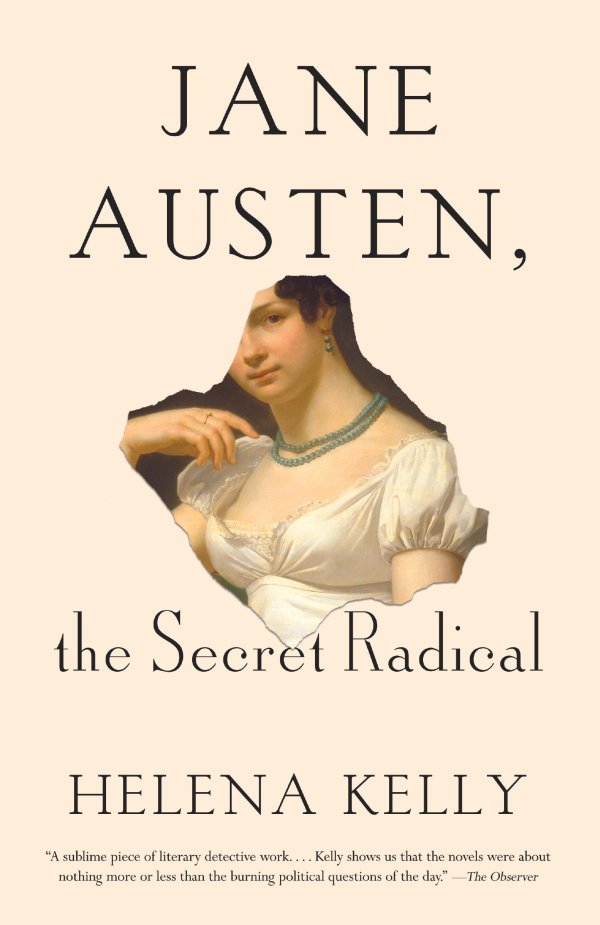From the desk of Tracy Hickman: If women who read are dangerous, what about women who write? Following my review of Stefan Bollmann’s Women Who Read Are Dangerous, I thought I would explore its “sister” book: Women Who Write Are Dangerous, also by Bollmann. Francine Prose, American novelist, essayist, and critic, sets the stage for... Continue Reading →
Women Who Read Are Dangerous, by Stefan Bollmann — A Review
From the desk of Tracy Hickman: If you page through Women Who Read Are Dangerous looking for visual representations that most people associate with danger, you might be confused initially. None of the women are brandishing weapons or committing violent acts. Instead, they sit quietly perusing books, pamphlets, magazines, hymnals, and letters. Some subjects have... Continue Reading →
Bloomsbury Girls: A Novel, by Natalie Jenner — A Review
From the desk of Tracy Hickman: Natalie Jenner’s debut novel The Jane Austen Society was an international bestseller and one of my favorite books of 2020. Would Ms. Jenner’s latest novel, set in post-war literary London, hold up under the weight of public expectation and comparison with her accomplished first effort? Would the Bloomsbury Girls... Continue Reading →
The Time Traveler’s Guide to Regency Britain: A Handbook for Visitors to 1789–1830, by Ian Mortimer — A Review
From the desk of Tracy Hickman: Austenesque fiction like The Jane Austen Project and the BBC TV series Lost in Austen have entertained Janeites with fantastic stories about journeying back in time to Austen’s Regency Britain. While I cannot imagine being tempted myself, unless guaranteed a round-trip ticket, the idea of a virtual visit to... Continue Reading →
Jane Austen’s Table: Recipes Inspired by the Works of Jane Austen, by Robert Tuesley Anderson — A Review
From the desk of Tracy Hickman: One of my favorite Austen quotes from her letters concerns food: “I shall eat ice and drink French wine and be above vulgar economy.” This was penned in anticipation of a visit to Godmersham, where her brother Edward provided luxuries beyond Jane’s regular fare. From the white soup... Continue Reading →
A Secret Sisterhood: The Literary Friendships of Jane Austen, Charlotte Brontë, George Eliot, and Virginia Woolf, by Emily Midorikawa and Emma Claire — A Review
From the desk of Tracy Hickman: If friends are family that we choose, then what do our friendships reveal about us? And what might the literary friendships of women tell us about their lives and their work? Authors and friends Emily Midorikawa and Emma Claire Sweeney examine the relationships of iconic literary women in A... Continue Reading →
The London House: A Novel, by Katherine Reay — A Review
From the desk of Tracy Hickman: I have been fascinated with history since I was a child. Learning about people and events from the past has helped me better understand my own life and the world around me. While there can be a temptation to look back at a period of history and think that... Continue Reading →
Jane Austen and Shelley in the Garden: A Novel with Pictures, by Janet Todd — A Review
From the desk of Tracy Hickman: Janet Todd’s latest novel is described as “a (light) meditation on age, mortality, friendship, the tensions and attractions between generations, hope, and the excitement of change” on the back cover. Turning over the attractive green paperback with its decorative motif of foliage and Jane Austen silhouettes, I noticed the... Continue Reading →
Frenchman’s Creek, by Daphne du Maurier — A Review
From the desk of Tracy Hickman: Revisiting a classic novel years after first reading it can yield surprises. Add a hazy recollection of major plot points and you are approaching a fresh canvas rather than a reproduction of a familiar portrait. I was intrigued to revisit Frenchman’s Creek because having last read it in high... Continue Reading →
The Jane Austen Society: A Novel, by Natalie Jenner — A Review
From the desk of Tracy Hickman: My go-to choice in times of uncertainty is a comfort read. While each person has their own ideas about what qualifies as comfort, I especially enjoy books by authors such as Miss Read (Dora Saint) and D.E. Stevenson. These books are set in a time and place distant enough... Continue Reading →
Miss Austen: A Novel, by Gill Hornby — A Review
From the desk of Tracy Hickman: Austenesque fiction has produced numerous works told by supporting characters from Austen’s novels, using these fresh viewpoints to breathe life into familiar and beloved stories. Similarly, the title character of Gill Hornby’s Miss Austen is not the famous author, Jane, but her devoted elder sister, Cassandra. In many Austen... Continue Reading →
Jane Austen, the Secret Radical, by Helena Kelly—A Review
From the desk of Tracy Hickman: Was Jane Austen a radical? Was she sympathetic to the “radical reforms” of Charles James Fox and others that included universal male suffrage, the abolition of slavery, and women’s rights? Few would readily place her in the company of Thomas Paine, William Godwin, or Mary Wollstonecraft, but perhaps that... Continue Reading →











